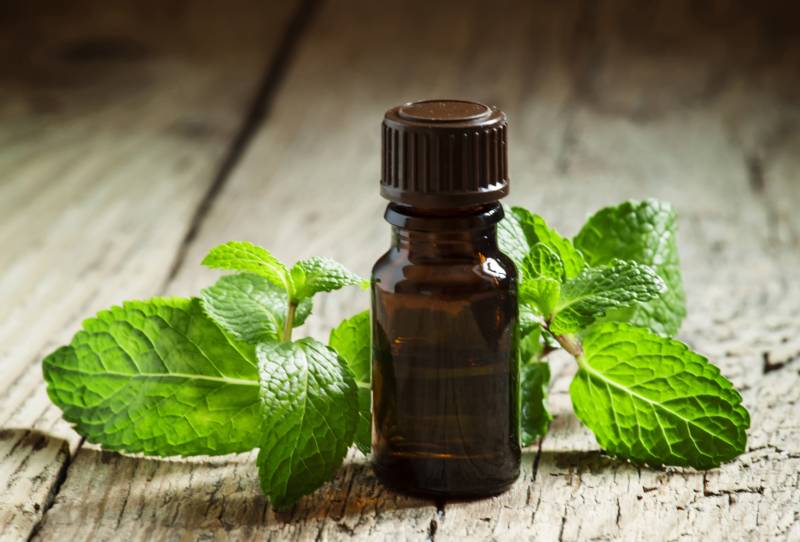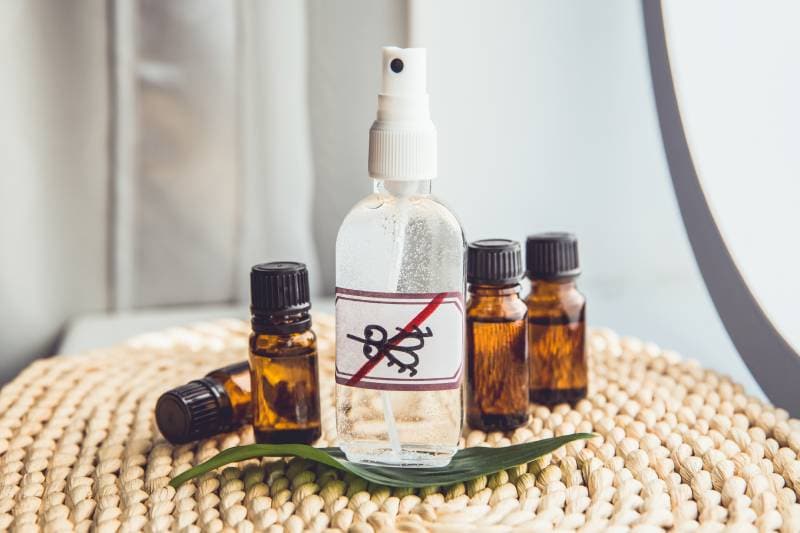Whether to treat fleas or manage a skin problem, it’s natural to wonder whether peppermint essential oil can help your canine companion. It’s commonly mentioned by “alternative care” providers and pet owners from various walks of life. However, just because something is “natural” does not mean that it is healthy and safe.
Peppermint essential oil is not recommended for dogs for various reasons, but in short, there is clinical evidence of many negative effects, including toxicity, and very little scientific evidence of any benefits.
Let’s discuss what peppermint essential oil is and why you shouldn’t use it on your dog.
What Exactly Is Peppermint Essential Oil?
This substance is made by concentrating the peppermint plant with either mechanical processing or distillation until it becomes a potent oil. The point is to extract the compounds from the peppermint plant and concentrate them into a different form, which is pure oil.
This “essential” oil is combined with a carrier oil during preparation for sale. Peppermint oil has a unique makeup of compounds and chemicals, which affects how it is smelled, absorbed, and metabolized by the body. While this essential oil is effective for various uses, it is not a good option for use on dogs or cats.

Why Peppermint Oil Is Not Safe for Dogs
We don’t support the use of essential oils with pets, and that includes the use of peppermint oil on dogs—or any animal, for that matter. To start with dog’s noses are much more sensitive than ours and strong smells such as peppermint oil can cause them distress. When inhaled it can also affect their breathing and respiratory system. Peppermint oil exposure can cause toxicity and result in clinical signs like weakness, lethargy, vomiting, and diarrhea. If a dog is exposed to a large amount of peppermint oil, it can even be fatal.
Certain alternative practitioners promote the use of limited essential oils, but there have not been enough published studies to determine their efficacy or safety. However, we do know that there are inherent risks to exposing your pet dog to essential oils. For example, applying peppermint essential oil to your dog’s coat can irritate their skin and cause serious discomfort.
Essential oils are quickly absorbed into the body orally or through the skin and must be metabolized by the liver. This can be problematic for dogs, especially those that are young or old or suffer from liver disease. Consuming peppermint oil, even by licking it off the skin or coat, can result in problems like gastrointestinal distress. It is even thought that the use of essential oils can cause behavioral changes and problems with the central nervous system. Serious respiratory problems can also be a result of improper essential oil use.
Peppermint Essential Oil as Flea & Insect Repellent
It seems to be true that peppermint oil can help repel fleas, ticks, and other pests like mosquitoes and even flies. However, it is not worth the risk to apply peppermint oil directly on your dog. It is best to hang sachets dipped in peppermint oil near the entrances of your home, where your pets cannot reach them. Alternatively, you can grow peppermint plants outside in areas where your pets do not go. You can also diffuse peppermint oil in rooms where you want to get rid of fleas or pests when your dog is not spending time in there. Let the space thoroughly air out before letting your dog back in.

Signs of Peppermint Essential Oil Poisoning in Your Dog
If your dog inhales or ingests peppermint oil and it causes a poisonous effect, they will display signs of illness and distress.
- Vomiting
- Diarrhea
- Wheezing
- Difficulty breathing
- Drooling
- Facial redness
- Lethargy
Even if your dog does not show signs of illness after you witness them being exposed to a large amount of peppermint essential oil, you should still contact a veterinarian for consultation and recommendations.
In Conclusion
Dogs should not be treated with peppermint essential oil—or any other kind of essential oil, for that matter—due to the potential for a toxic reaction. However, that is not to say that peppermint essential oil should be banned from your household. There are ways that you can use the oil without directly affecting your dog, including to help with pest control.
- Related Read: Can Dogs Eat Mint? Vet Approved Facts & FAQ
Featured Image Credit: Halil ibrahim mescioglu, Shutterstock












